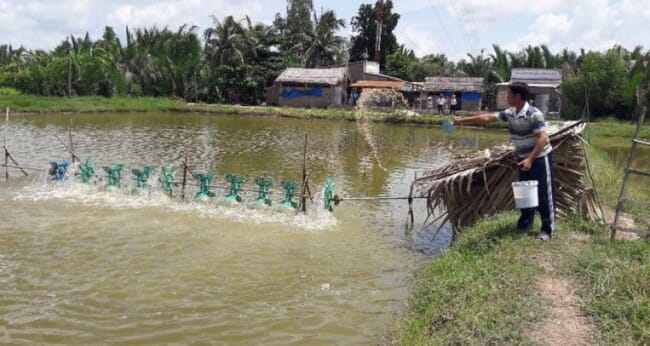
© Wageningen University
So concludes a study by Wageningen University and WorldFish, which aimed to establish more economical ways of increasing aquaculture yields, as a means to alleviate poverty and increase food security in Africa and Asia. In particular they looked at feeds that not only target the fish but also the pond organisms that help break down waste and produce natural feed for the fish.
As different ingredients are used, this feed is cheaper than conventional alternatives. While it has less direct nutritional value for the fish, it allows the pond to provide more high-quality feed.
“This makes it very attractive for a fish farmer,” said Wageningen researcher Marc Verdegem. “The fish production is the same, if not higher, and the fish farmer pays less for the feed”.
In Bangladesh, for example, fish farmers using this method reported a 22 percent increase in income.
The feed used in the study contains more carbohydrates, which are only partially digested by the fish. Bacteria in the pond convert what is not digested into nutrients for the pond, contributing to the production of natural food for the fish through the pond's food web.
Aquaculture has developed rapidly and intensified in recent years, and according to the researchers this often results in overfed ponds and a disturbed natural pond ecosystem.
“We studied how we can achieve a food web that ensures the pond stays healthy and functions as it should. Natural products, such as pond organisms and plankton, can contribute considerably to the fish's menu,” said Verdegem.
The researchers note that improving the social, economic and ecological sustainability of fish feed will increase the ability of the aquaculture sector to fight poverty and ensure food security in Africa and Asia. Aquaculture is the fastest-growing production sector in the world and provides a crucial source of income for small-scale fish farmers and local communities. Moreover, farmed fish – such as tilapia, carp and catfish – form an important protein source for many people.




